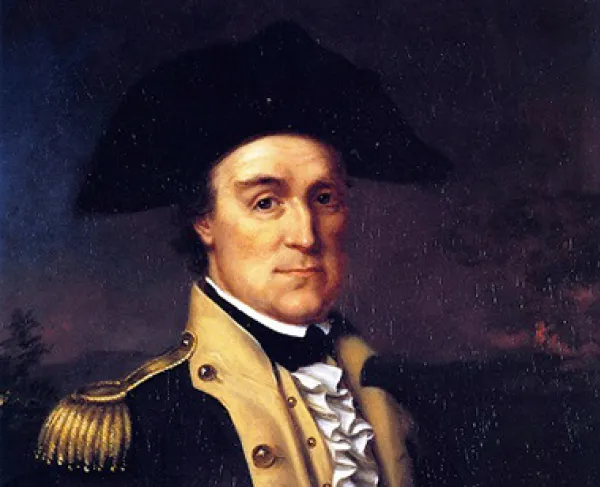Elijah Clarke

Information about Elijah Clarke’s life is sparse and at times contradictory. It seems that Clarke was born sometime between 1733 and 1742 in North Carolina. In 1763 he was married to Hannah Harrington and in or around 1773 he migrated to the frontier of Georgia. While Clarke apparently signed a petition backing the British government in 1774, with the outbreak of war he became a supporter of the rebellion. During the Revolutionary War era he commanded Georgian partisan force, fighting against not only the British, but Creek and Cherokee Indians on whose land white settlers were encroaching. On February 14, 1779, Clarke led a part of the American force that surprised and defeated a loyalist militia at the Battle of Kettle Creek. After the British capture of Charleston in 1780, Clarke and his Georgians participated in the guerilla campaign against the British and their supporters in the South Carolina backcountry. He was one of three American commanders at the Battle of Musgrove’s Mill, during which he was wounded. Clarke would go on to serve in Georgia’s legislature from 1781 to 1790 and in the 1789 state constitutional convention. He also continued to lead militia forces against Native Americans. In early 1794, Clarke accepted a French commission as a major general and planned to mount an attack on the Spanish colony of Florida. The invasion never materialized and Clarke turned his attention to a different scheme, attempting to create an independent republic west of the Oconee River on land promised to the Creek Indians. Under pressure from President George Washington, the state of Georgia sent 1,200 militiamen to expel Clarke and his supporters. Clarke surrendered without a fight after receiving a promise of amnesty. He died on December 5, 1799. His son John would go on to serve as Georgia’s governor from 1819 to 1823.
Related Battles
16
133





